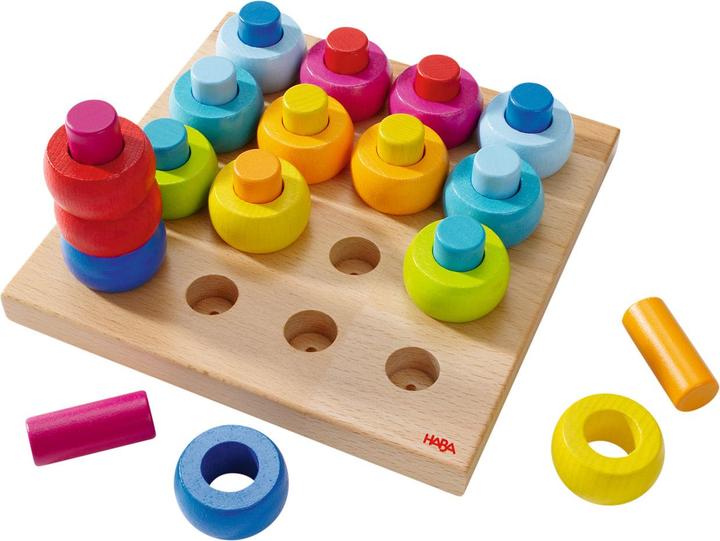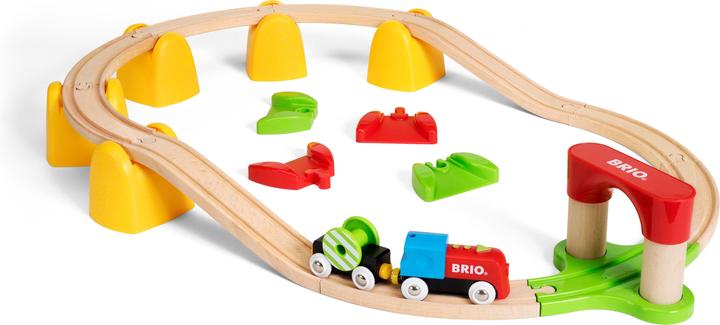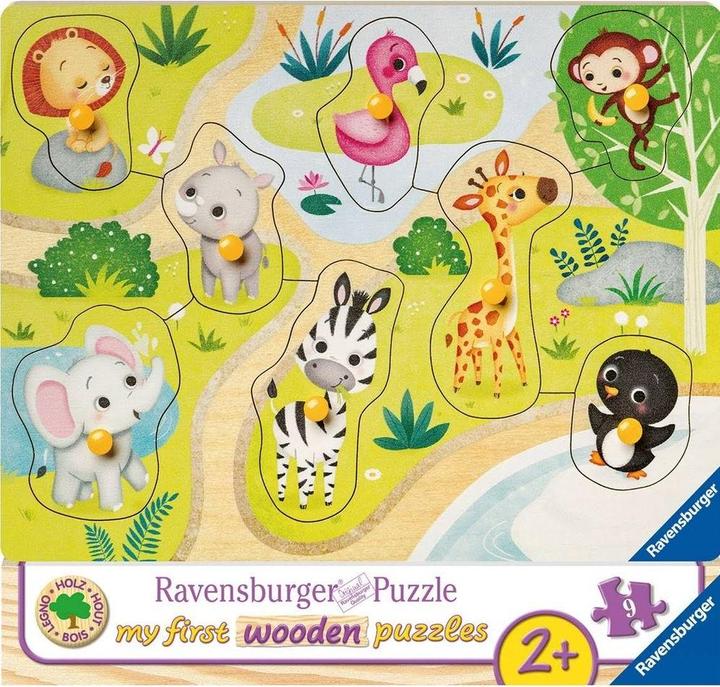

Harmful substances, environmental protection, working conditions: Stiftung Warentest checks wooden toys
Stiftung Warentest has put wooden toys through their paces. The result: many manufacturers are less eco-friendly than expected. And 5 out of 15 contain harmful substances - at least less than ten years ago.
Toys should be fun. But ideally, they should also be useful and sustainable. You can't go far wrong with wooden toys, can you? Not quite, as a comprehensive check by Stiftung Warentest has revealed.
The German consumer magazine tested 15 wooden toys for children under the age of three. It categorised ten as "safe", while critical levels of harmful substances were found in the others. It also checked the sustainability and working conditions of the suppliers. Eight failed.
1. safety: no direct danger, but critical substances
In terms of safety, Stiftung Warentest subjected the wooden building blocks, puzzles and sliding figures to a double test: on the one hand, it checked the test products for direct hazards such as small parts that could be swallowed, and on the other for harmful substances.
"We tugged on the toys, dropped them or hit them hard to check whether small parts that could be swallowed came loose," reads the report on the more than 200 stress tests. "We also checked whether children could strangle themselves with cords or whether bells rang too loudly for their little ears." The good news: all the test products passed.

Source: Stiftung Warentest
The situation is different when it comes to testing for harmful substances. In more than 1000 tests, 220 substances were analysed - and five toys were found to contain critical amounts of harmful or environmentally damaging substances in paint, plywood or textiles. Specific examples: Carcinogenic dimethoxybenzidine was found in the blue textile of a Plantoys wooden cube. And the black plastic ring of the Frog King sliding figure from Nic contains the plasticiser diisononyl phthalate (DINP) in a concentration that is banned under EU law.
In summary, Stiftung Warentest classifies four toys as "unsatisfactory" in terms of safety, one as "sufficient" (magnetic fishing game from Goula) and ten as either "satisfactory" or "good". We stock some of the test products in the Galaxus shop:
The inadequate and sufficient
Based on the test results, we have blocked the two defective products from sale for the time being (Activity Blocks and Pepe the dog). Our Category Management is looking into removing them from the range and is in contact with the manufacturers.
The satisfying ones
The good ones
At least the result has improved compared to 2003. In the test ten years ago, Stiftung Warentest advised against every second product. Both because of harmful substances and other defects such as choking hazard.
2 Corporate responsibility: many disappoint
Furthermore, Stiftung Warentest took a closer look at the manufacturers of the 15 wooden toys tested in terms of environmental protection and working conditions. It asked the suppliers about their social and ecological corporate responsibility and traced the supply chains of the tested products back to the origin of the wood. Answers, supporting documents, test reports from independent certifiers and a video interview contributed to the assessment.
The deficient
Six suppliers disappointed because they provided little to no insight. They therefore received a "poor" rating:
- Ikea (Uppsta motorised loop)
- Nic Spiel + Art (Walter, sliding figure frog king)
- Schmidt Spiele (Selecta; pushing toy duck)
- Simba Dickie (Eichhorn; rolling track house)
- Smyths (Squirrel Play; wooden building blocks)
- Jumbo Games (Goula; magnetic fishing game)
The Sufficient
Two received a "sufficient". They barely substantiated their statements, did not allow any discussions with the head office or Chinese factory or kept the production site completely secret.
- Goki (peg puzzle farm)
- Grimm's (geo-blocks)
The satisfying and the good
Three receive the rating "satisfactory":
- Rossmann (world of ideas; wooden train crocodile),
- Ravensburger (wooden zoo puzzle)
- Hape (Pepe pull-along dog)
Four are rated as "good":
- Lidl (Playtive; motor skills games tapping bench)
- Ravensburger (First Brio railway playset)
- Haba (plug-in game colour squiggles)
- Plantoys (Acivity Blocks) are considered "good"
Haba and Brio, which belongs to Ravensburger, have comprehensive guidelines on remuneration, health and safety, breaks and working hours, which they implement well in their factories in Germany and the Czech Republic. According to Stiftung Warentest, Lidl, Hape, Ravensburger and Rossmann were also transparent and had many social and ecological measures in place. In some cases, they provided insights into their production facilities in China.
One manufacturer stood out from the good ones: Plantoys showed how things can also work in Asia, praised Stiftung Warentest. Namely with living wages and a pension fund for employees. Plantyos also processes the discarded rubber trees from the plantations around the factory into toys and utilises photovoltaics and heat recovery. However: In the product test, Plantoys toys received a "poor" (see above). Only Lidl scored well in terms of both product quality and corporate responsibility.
In the right direction, but...
"Our test shows: Those companies in the toy industry that opened their doors to us are heading in a good direction," summarises Stiftung Warentest. "The others still have a long way to go in terms of transparency." And "the others" are still more than half of the suppliers tested.
You can do a lot of things right with wooden toys for children. But you can also get a lot wrong. It's no different with plastic or textile alternatives. The GS mark provides guidance: Toys labelled with this mark meet the legal requirements regarding safety and harmful substances.
Caption photo: Shutterstock20 people like this article
Mom of Anna and Elsa, aperitif expert, group fitness fanatic, aspiring dancer and gossip lover. Often a multitasker and a person who wants it all, sometimes a chocolate chef and queen of the couch.






